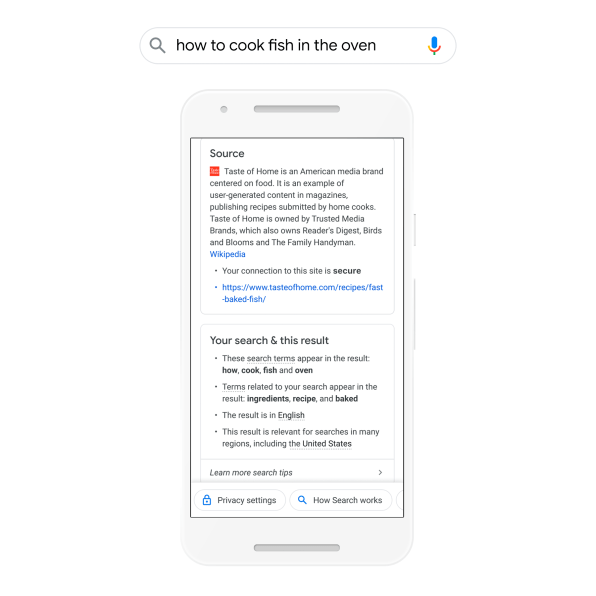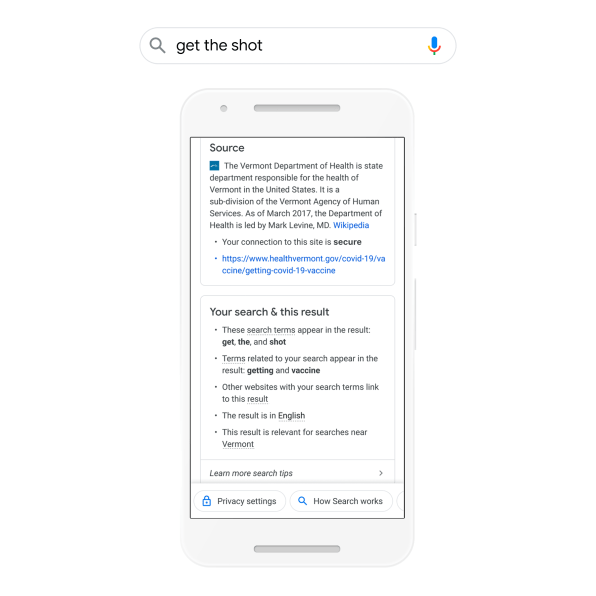Google’s search algorithm just got slightly less mysterious
Since February, there have been three little dots next to each link in Google’s search results. If you’ve noticed the dots and clicked on them, you’ve gotten a pop-up panel called “About this result” that’s provided information such as a description of the site Google is linking to, how long it’s been in the Google index, and whether it’s encrypted. Now Google is building out this info panel with a section called “Your search & this result,” which offers details on why a particular page is in the results.
For most results, you’ll get see the words in your query that led Google to come up with a particular result. You’ll also see related terms that factored into the result showing up: Search for “how to cook fish in an oven,” for example, and Google will extrapolate that to pages relevant to “ingredients,” “recipe,” and “baked,” which may be good picks even though you didn’t use those words.

Other bits of information that may show up in “Your search & this result” include whether a result is specific to your locality or of broader geographic relevance and what language it’s in. Google will also note if it chose a result because it’s widely linked to by other pages—the original sign of relevance that Google search was based on in the first place.
Why is Google adding these details about search results, which will only appear if a user diligently clicks on those three dots next to a link? The company says that it wants to be transparent, especially if it will help users learn to craft search queries that are likely to work well or clarify why less-than-perfect results aren’t more relevant. And though the new feature won’t change search results—just explain them—Google hopes that it might be a way to discover valuable sites in itself.
According to Google product manager Elizabeth Tucker, who spoke during a briefing for reporters, “the goal here really is to help people understand results and find results that are helpful for them. I think the source section can help you find websites that will become good sources for you. We always try to offer a variety of diverse sets of results on the page, but maybe sometimes it’s not quite as diverse as we would like. We’re hoping that this additional context can actually bring some of these factors to the fore.”

For years, critics and legislators have charged that Google is insufficiently forthcoming about how the algorithms that shape results at Google search and YouTube work. Though the company says that it wants non-search nerds to be better informed about the results they get, it’s not claiming that “Your search & this result” will allow anyone to truly reverse engineer how Google search works—a process involving thousands of elements rather than a single secret formula. “We’re not trying to explain how all of those super-duper fancy systems work under the hood,” said Tucker.
The new version of “About this result” is currently rolling out and should be widely available by next week, Google says.
(31)



